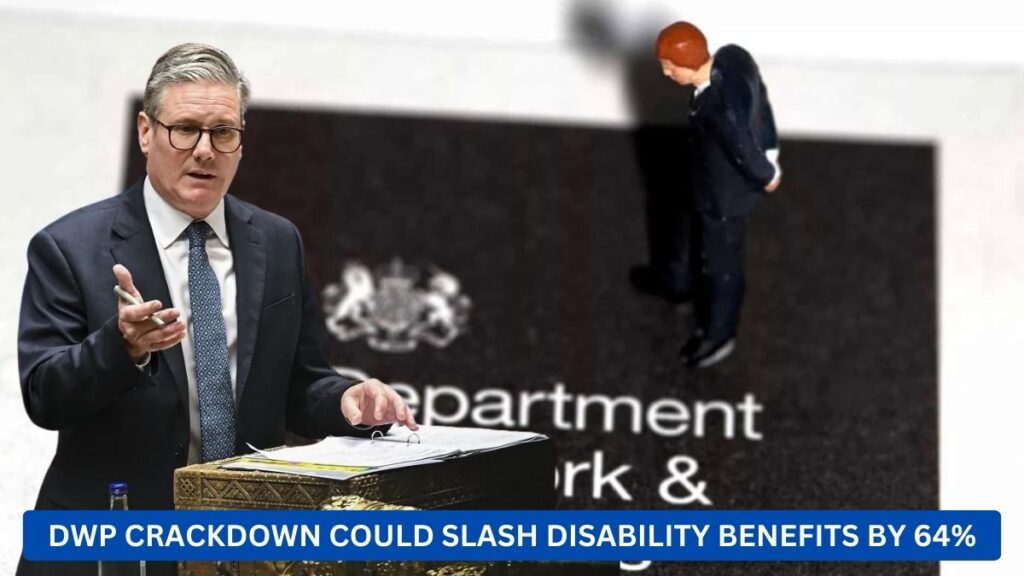The UK government’s Department for Work and Pensions (DWP) is set to implement sweeping welfare reforms that could see thousands of disabled individuals lose up to 64% of their income. The changes, part of Labour’s plan to tighten spending, have triggered intense public and political backlash, with many warning that the policy could disproportionately impact the most vulnerable citizens.
What’s Changing?
Work and Pensions Secretary Liz Kendall has revealed that Labour’s government aims to cut welfare spending by £5 billion annually. The key changes include stricter eligibility rules for Personal Independence Payments (PIP) and incapacity benefits. These reforms could affect up to 1.2 million people, including disabled individuals and unpaid carers.
PIP is a benefit designed to help with the extra costs of long-term disability or ill health and currently acts as a gateway to other financial supports, including:
- Free NHS prescriptions
- Council tax reductions
- Housing benefit enhancements
- Carers’ allowance
Stripping recipients of PIP could therefore trigger a domino effect, leading to the loss of all associated entitlements. According to the Financial Times, this could reduce annual incomes from around £15,000 to £5,400, representing a 64% cut.

Who Will Be Affected?
Those most at risk include:
- Individuals with mental health conditions or chronic illnesses
- People currently receiving PIP or Employment and Support Allowance (ESA)
- Unpaid carers whose Carer’s Allowance is dependent on the person they care for receiving PIP
In some households, both the disabled individual and their carer could be impacted. This raises concerns of dual-income loss, putting entire families at financial risk.
The government has not released a full impact assessment yet. However, many advocacy groups are calling for urgent clarification on how eligibility reviews will be carried out and what protections will be in place.
Government’s Justification
The reforms are part of a broader effort to tackle welfare fraud and encourage those who are able to work to re-enter the job market. Labour ministers argue that the system needs updating to ensure fairness and sustainability.
In an interview with The Times, Minister Torsten Bell admitted he couldn’t live on the proposed benefit rate of £70 per week, yet defended the cuts, highlighting the need for responsible fiscal management. (Source)
Public and Political Backlash
The response from both opposition MPs and disability rights groups has been swift. The Guardian editorial board labeled the changes as “harmful,” stating that Labour’s focus on deficit reduction must not come at the expense of society’s most vulnerable.
Some affected individuals have voiced their fears and frustrations. One disabled person told The Guardian: “I can’t sleep, I’m so scared. If I lose my PIP, I’ll have nothing left.” (Read full article)

What You Can Do
If you’re currently receiving disability benefits, it’s essential to:
- Review your current eligibility via the DWP Benefits Checker
- Consult a welfare adviser or disability rights group for legal guidance
- Keep documentation and medical records up to date in case you’re reassessed
- Submit a mandatory reconsideration if your benefits are withdrawn
You can also contact organizations like Citizens Advice or Disability Rights UK for support.
The Road Ahead
While Labour insists the reforms are aimed at ensuring the long-term sustainability of the benefits system, the impact on real lives is becoming impossible to ignore. As the proposals begin to move through the policy pipeline, many await further clarity on how and when these cuts will take effect—and whether those who depend on these benefits will be given adequate time and support to adjust.
This article has been carefully fact-checked by our editorial team to ensure accuracy and eliminate any misleading information. We are committed to maintaining the highest standards of integrity in our content.



